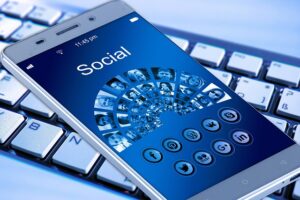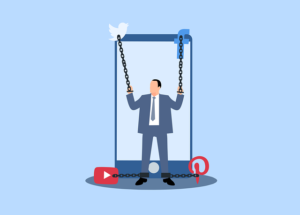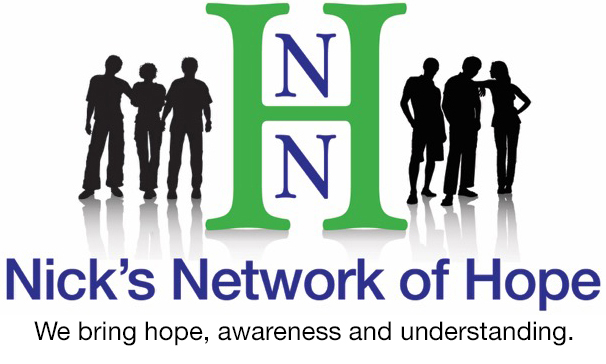
To say our phones and social media have our attention is an understatement. More than two-thirds of the world population uses the internet. 94.2% of internet users have social media identities today. (Smart Insights) 1 Social media platforms such as Facebook, Instagram, X (formerly known as Twitter), and Tik Tok can keep us connected to family, friends, co-workers, and even people we don’t really know, however, it also can have its drawbacks to our mental well-being.
As of 2024, worldwide, the average person spends 2 hours and 20 minutes per day on social media. This differs according to age groups with the teen population taking the lead. The average teenager spends 4.8 hours on social media daily. (Datareportal) 2
Likewise, our phone usage as a society is also problematic. According to a recent survey conducted by Reviews.org., approximately 57% of Americans believe they are addicted to checking their phones about 144 times per day, and 60% say they sleep with their phones at night.
Our youth are constantly on their phones. The Pew Research Center surveyed 1,453 teens ages 13 to 17 and their parent in 2023. In that survey about 4 in 10 teens said they spend too much time on their phones and about a quarter of them said the same about social media. But, most teens haven’t cut back on their phones (36%) or social media use (39%). Why? It is possibly due to the fact that most teens (70%) say the benefits of smart phones outweigh the harms for people their age and about 2/3 of teens say phones make it easier for youth to pursue interests and be creative. It should be noted, however, that 42% of teens admit that smartphones make learning good social skills harder. Also, 72% of US teens say they often feel happy and peaceful when they don’t have their cell phones. 3 It seems we are all having a love-hate relationship with our phones and social media.
It is undeniable though that people are suffering from more mental health issues such as anxiety and depression these days. What is causing it? What is the common denominator? It is undeniable that since smart phones and social media came into our world, people have become less happy.

Some Signs it’s Time to Reduce Usage of Phones/Social Media – or At least Take a Break
- Feeling of sadness, depression, anxiety, insecurity, or jealousy after being on social media
- Loss of productivity in daily tasks because of time spent on screens
- Feeling panic or completely out of sorts when phone is not with you
- A constant need to check phone or social media
- Inability to focus or concentrate because of being distracted by phone/ social media
- Sleep deprivation or insomnia from being on phone or social media at night
- Obsessing about posts, such as the number of “likes” and comments, application of filters, etc.
- Equating number of “likes” and positive comments from a post to self-worth
- Being bullied online
- Constant comparing one’s life to how others are portrayed on social media
- The number of daily online communications with people far outweigh face-to face communications
- Family and friends raise concerns about a lack of in-person socialization with them
- A self-awareness of feeling bad or worse after scrolling on social media
Once you recognize signs, try to identify what triggers you to go on your phone and/or social media so that you can learn to cope with those triggers in healthier ways, or even completely eliminate them.
Identify Your Triggers for Excessive Phone/Social Media Usage
Do you go on your phone/social media because you are bored? If so, try engaging in alternative activities such as: reading books, taking a fun class, planning get-togethers with a friend, taking up running or a new hobby, learning a craft, spending time in nature, learning to meditate, or playing music – to name a few.
Do you mindlessly scroll on social media late at night? If that sounds familiar, then recognize your need to sleep. Educate yourself as to the relationship between good sleep and positive mental health. Go to sleepfoundation.org for more information. Understand that blue light from screens stimulates parts of the brain, making people feel alert and even energized. 70% of people say they use social media AFTER getting into bed, and 15% of them use it for at least an hour. Approximately 21% of adults wake up to check their phones during the night, which can cause them to lose sleep, put them at risk for sleep disorders like insomnia, and cause depression. Try to identify when you are more prone to go on your phone/ social media and then fill that time with more productive activities (see above).
Are you attracted to social media because you suffer from FOMO (fear of missing out)? If you find yourself looking on social media for this reason, learn to appreciate the value of your own life. We were all born with our own gifts (everyone has them) and with people around us who love us. A post is a snapshot of one thing a person did for a brief moment. What you don’t see are the other countless hours in that person’s life that were very mundane, ordinary, and maybe even somewhat boring. Try to focus on your own life and enjoy it. Don’t fall into the trap of comparing yourself to others. Know your own self-worth. Each one of us is unique and possesses talents and gifts. And even if you did miss out on an event, so what? Life goes on and will be filled with many more fun, exciting activities and get-togethers. Your self-worth did not diminish because you did not attend an event for whatever reason, even if you weren’t invited. Future opportunities will arise.
Do you become fixated on seeing an individual or group on social media? If so, ask yourself why. What is it about that person or group that makes you want to learn everything about them? Again, realize that what you see on the internet about a person or group is often not reality. Social media postings are often filled with people who are posing in certain ways, using filters, and trying to look their happiest. You are seeing people in a snapshot of time that was absolutely orchestrated to look as joyful as possible—this is not reality. If you want to know more about the group, ask them face-to-face. If you want to know more about an individual, talk to them in-person to truly learn their personality and character.
Now that you have identified some signs pointing to a need to reduce time, take a break from, or possible eliminate entirely phone usage and/or social media – AND – you have identified what triggers you, it is time to make an action plan to feel better and get your usage under control. Look to our Social Media/ Phones and Mental Health—Get Help Page for further information of how to make a plan.

- (SmartInsights.com) retrieved from https://www.smartinsights.com/social-meida-marketing/social-media-strategy/new-global-social-media-research/ ↩
- We are Social & Meltwater (2024) “April 2024 Digital Trends,” retrieved from https://datareportal.com/reports/digital-2024-april-global-statshot ↩
- Reviews.org (2023) “Cell Phone Usage Statistics: Mornings Are For Notifications,” retrieved from https://www.reviews.org/mobile/cell-phone-addiction/ ↩
